Hamas militants have launched dozens of rockets at Israel after Israeli air strikes killed senior commanders and felled a multi-storey building in Gaza.
Reports say several locations in southern Israel were hit, killing a young child in Sderot.
The escalation of the fighting, which began on Monday, has prompted the UN to warn of a "full-scale war".
At least 65 people in Gaza, including 14 children, and seven people in Israel have been killed since then.
The fighting erupted after weeks of rising Israeli-Palestinian tension in East Jerusalem which culminated in clashes at a holy site revered by Muslims and Jews.
Further violence in Israeli areas with mixed Jewish and Arab populations led to the arrests of more than 374 people on Wednesday evening, Israeli police said, and 36 officers being injured.
There were reports in Israeli media of both Jewish and Arab individuals being attacked by mobs in Israeli towns and cities.
They include a Jewish man who suffered injuries at the hands of Arabs in the city of Acre, and an Arab man who was dragged out of his car and beaten by a mob of right-wing Jews in Bat Yam.
Prime Minister Benjamin Netanyahu, speaking late on Wednesday night, said he planned to send in military forces to help police maintain order in cities ruptured by violence.
Mr Netanyahu said the attacks in recent days amounted to "anarchy".
"Nothing can justify an Arab mob assaulting Jews, and nothing can justify a Jewish mob assaulting Arabs," he said in a video statement, as reported by the Times of Israel.
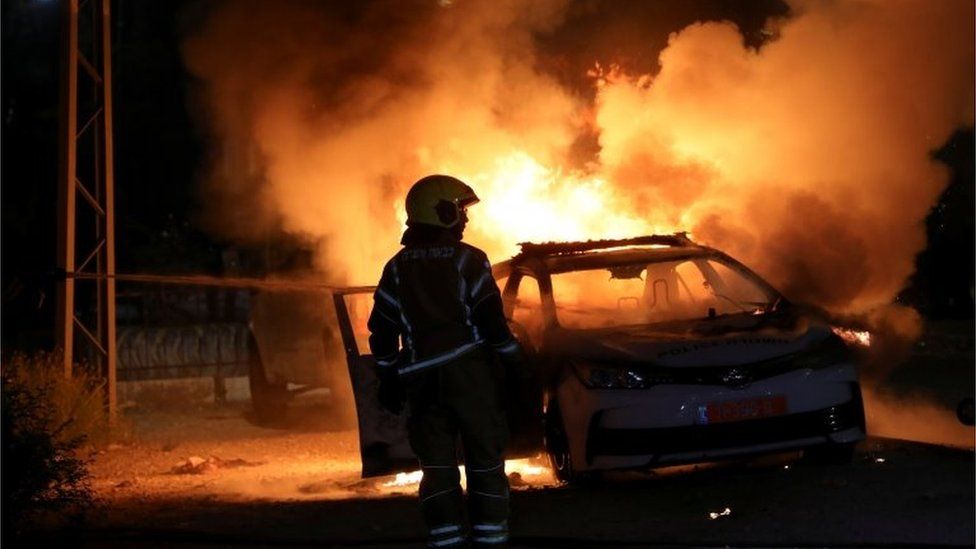
Palestinian militants have been firing rockets into Israel since Monday night, and Israel has responded by hitting targets in the territory.
Hundreds of air strikes and rocket attacks have been carried out.
The Hamas-run health ministry in Gaza says that more than 360 people have been injured there since the conflict began, as well as the 65 who have died.
Mr Netanyahu said the government would use all its strength to protect Israel from enemies on the outside and rioters on the inside.
But the Palestinian Authority condemned Israel's "military aggression" in a tweet, saying it was "traumatizing an already beleaguered population of 2 million people".
What happened on Wednesday?
Militants in Gaza said they had fired 130 rockets into Israel in response to an Israeli aid raid which destroyed the al-Sharouk tower in Gaza City.
The tower, which is the third tall building to be destroyed by air strikes this week, housed al-Aqsa TV, the station run by Hamas.
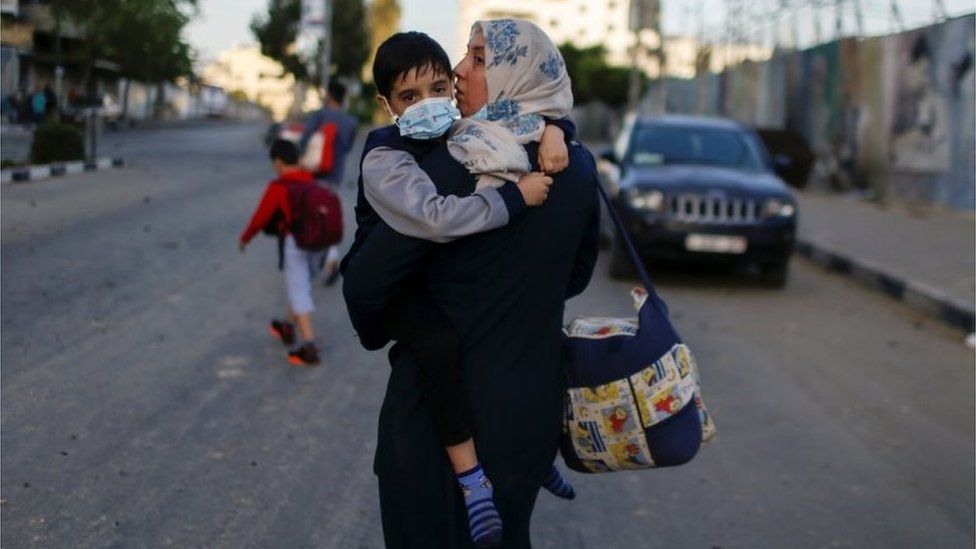
Israel said it had killed senior Hamas officials in Gaza, and was also targeting missile launching sites. Hamas confirmed a senior commander and "other leaders" had died.
The Israel Defence Forces (IDF) said on Wednesday that their strikes on Gaza were the largest since the conflict in 2014.
Residents had been warned to evacuate the buildings before fighter jets attacked; however health officials said there were still civilian deaths.
Five members of one family were killed in an air strike on Tuesday, including two young brothers, according to AFP news agency.
"We were laughing and having fun when suddenly they began to bomb us. Everything around us caught fire," their 14-year-old cousin, Ibrahim, said, breaking down in tears as he described their death.
Meanwhile millions of Israelis were in bomb shelters on Wednesday evening, according to the IDF, after sirens warning of rockets sounded across the country.
The child killed in the Israeli town of Sderot was named as Ido Avigal, aged six, who was caught in an attack on a block of flats.
Anna Ahronheim, the defence and security correspondent of the Jerusalem Post, described spending Tuesday night in a shelter with her five-month-old baby.
"To hear hundreds of interceptions and even to hear rockets fall near us was horrifying," she told the BBC.
On Thursday morning, the IDF said about 1,500 rockets had been fired from Gaza into Israeli cities since hostilities escalated at the start of this week.
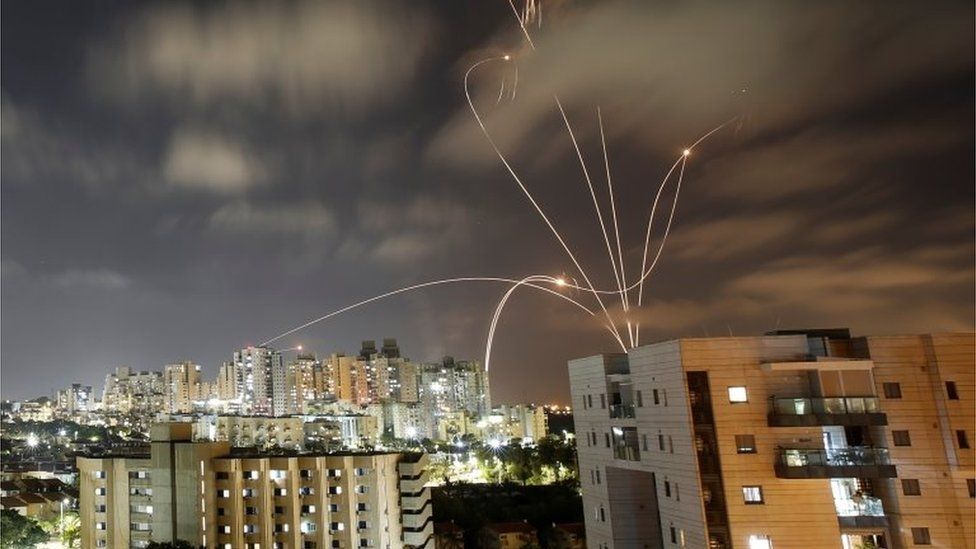
On Wednesday morning an Israeli soldier was killed by an anti-tank missile fired from Gaza into Israel, authorities said, while two Israeli Arabs died in Lod when a rocket hit their car.
How has the world responded?
United Nations Secretary General António Guterres said he was "gravely concerned" by the ongoing violence. The UN Security Council has met to discuss the issue, but has not issued a statement.
In a phone call with Mr Netanyahu on Wednesday, US President Joe Biden offered his support for Israel's security but stressed the need to restore "a sustainable calm".
"My expectation and hope is that this will be closing down sooner than later, but Israel has a right to defend itself when you have thousands of rockets flying into your territory," he told reporters at the White House.
US Secretary of State, Antony Blinken, said he had sent an envoy to the region to meet both sides.
Russia has called for an urgent meeting of the Middle East Quartet (the US, EU, UN and Russia).
A Russian foreign ministry statement quoted a Hamas spokesman as saying the movement was ready for a ceasefire if Israel stopped "violent acts" in East Jerusalem and "illegal measures in respect of its native Arab residents".
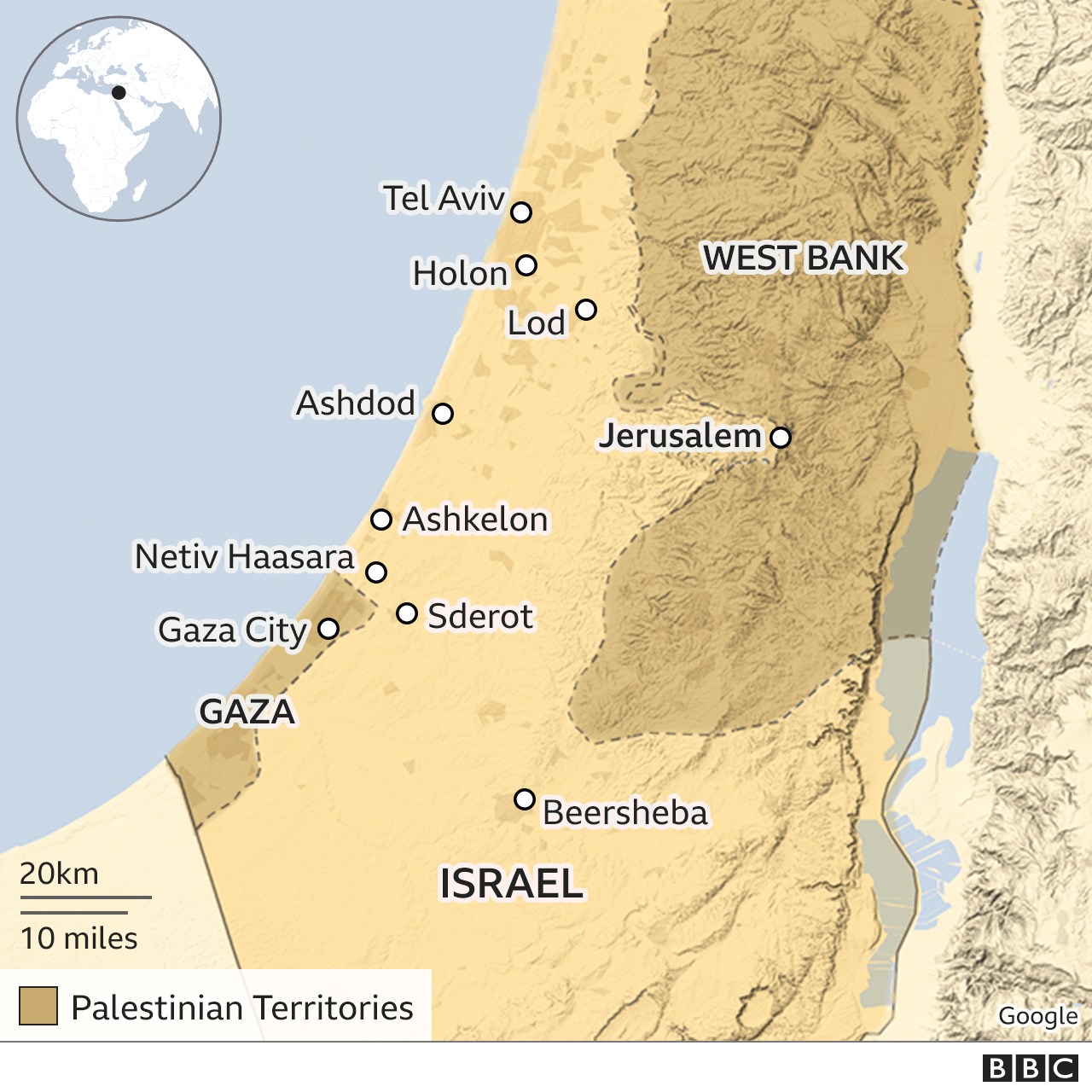

What has caused the violence?
The fighting between Israel and Hamas was triggered by days of escalating clashes between Palestinians and Israeli police at a holy hilltop compound in East Jerusalem.
The site is revered by both Muslims, who call it the Haram al-Sharif (Noble Sanctuary), and Jews, for whom it is known as the Temple Mount. Hamas demanded Israel remove police from there and the nearby predominantly Arab district of Sheikh Jarrah, where Palestinian families face eviction by Jewish settlers. Hamas launched rockets when its ultimatum went unheeded.
Palestinian anger had already been stoked by weeks of rising tension in East Jerusalem, inflamed by a series of confrontations with police since the start of the Islamic holy month of Ramadan in mid-April.
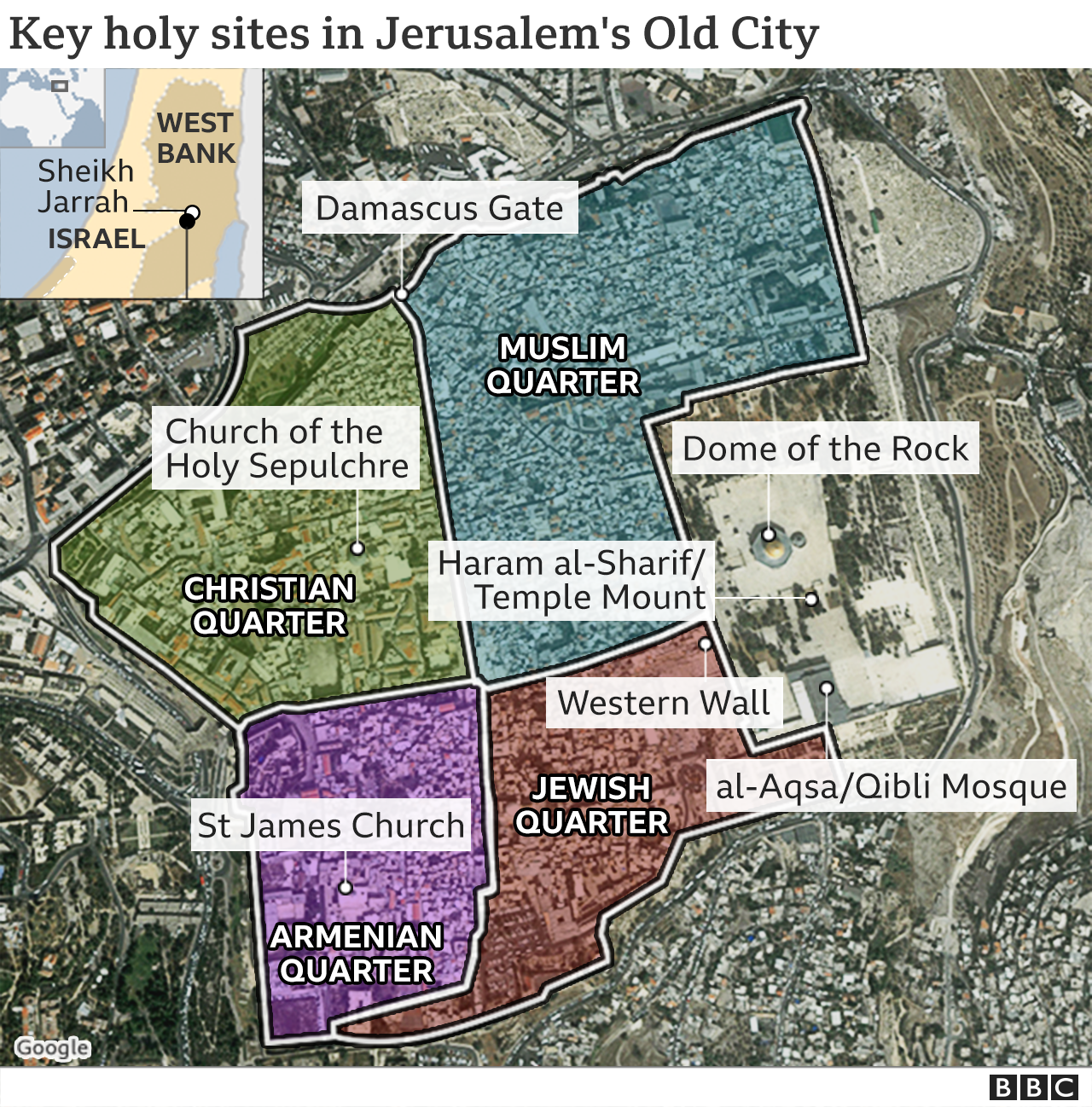

It was further fuelled by the threatened eviction of Palestinian families from their homes in East Jerusalem by Jewish settlers and Israel's annual celebration of its capture of East Jerusalem in the 1967 Middle East war, known as Jerusalem Day.
The fate of the city, with its deep religious and national significance to both sides, lies at the heart of the decades-old Israel-Palestinian conflict. Israel in effect annexed East Jerusalem in 1980 and considers the entire city its capital, though this is not recognised by the vast majority of other countries.
Palestinians claim the eastern half of Jerusalem as the capital of a hoped-for state of their own.

Are you in Israel or Gaza and affected by these events? Please share your story by emailing haveyoursay@bbc.co.uk.
Please include a contact number if you are willing to speak to a BBC journalist. You can also get in touch in the following ways:
- WhatsApp: +44 7756 165803
- Tweet: @BBC_HaveYourSay
- Please read our terms & conditions and privacy policy
If you are reading this page and can't see the form you will need to visit the mobile version of the BBC website to submit your question or comment or you can email us at HaveYourSay@bbc.co.uk. Please include your name, age and location with any submission.
World - Latest - Google News
May 13, 2021 at 05:55AM
https://ift.tt/3eHjFlM
Israel-Gaza: Rockets pound Israel after militants killed - BBC News
World - Latest - Google News
https://ift.tt/2SeTG7d
https://ift.tt/35oCZy1
Bagikan Berita Ini














0 Response to "Israel-Gaza: Rockets pound Israel after militants killed - BBC News"
Post a Comment